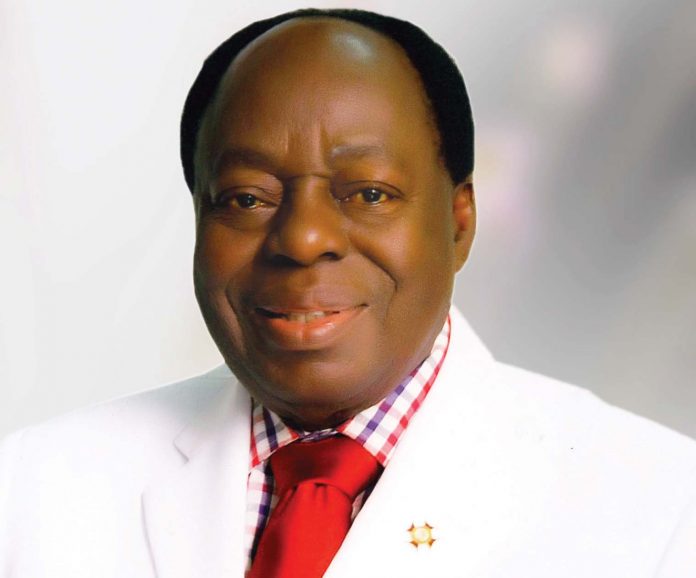
Legal luminary and the founder of Afe Babalola University, Ado-Ekiti (ABUAD), Aare Afe Babalola, has once again brought to the fore the issue of what the minimum educational qualification for people seeking to be president, governors and other elective positions should be.
He also spoke on sundry issues of national concern, including the large retinue of political aides appointed by some political leaders, and who gulp huge resources by way of mouthwatering perks and emoluments. He recalled that lawmakers in the First Republic were on part-time basis and therefore got only sitting allowances, not salaries as we have it today. He also pushed for the imperative of a single presidential and gubernatorial term of six years, among others.
Aare Babalola, who spoke on “Awoism and the unending search for transformational leadership in Nigeria: Political, economic, educational and social challenges” at the Obafemi Awolowo Leadership Prize Award ceremony held at Harbour Point, Victoria Island, Lagos, on March 6, is the third and latest recipient of the prestigious award; the other two recipients being Nobel Laureate Wole Soyinka and former South African President, Thabo Mbeki.
The legal icon was probably right in his recommendation of a six-year single tenure for president and governors because of the intensity of the struggle for these positions, as a result of the power and influence the occupiers of the offices wield. Not a few people felt this recommendation would reduce the ‘do-or-die’ tendencies on the part of many of those seeking these positions. He may also have been right in recommending a return to the past, when law makers would only be paid allowances as a way of conserving fund, as well as reducing the unnecessary acrimonies that usually attend the electoral process in the National Assembly.
But we are not comfortable with legislating educational qualification for seekers of governorship, presidential or other positions. Yes, this may seem the in-thing in our age. There is no doubt that education is key to development; and that people who go to the university are supposed to be better exposed to cope with modern day challenges.
But we have seen that this is not always so. As a matter of fact, some of the graduates who have held leadership positions in the country have only shown that they passed through the citadels of learning, the citadels of learning did not pass through them. Indeed, the saying that degrees are awarded only to people found worthy in character and in learning, has no meaning when we consider what some of the university graduates who have held leadership positions in the country did while they were in office. Rather than use the education they acquired for positive purposes, they have used it rather to dysfunctional ends.
What we have seen with regard to these people are creative ways to cheat or steal from the national till without being caught; or when caught, without being punished. They do virtually everything with impunity, in spite of their educational attainments and in a ‘who will catch me’ manner. Above all, they end up leaving the office they occupy worse than they met it. Yet, we have seen quite a few examples of people who never went to university and still left better legacies than those who were supposed to be university graduates.
What we are saying in effect is that being a graduate will not necessarily translate to delivery of democratic dividend. It is more of an individual thing; people’s background, antecedents, etc., all matter in making one a successful or a failed leader. Therefore, we should not be mechanistic about or fixated with university degrees. A university degree is desirable; but we should make no attempt to fetichize it. It is something that should be allowed to evolve into an accepted convention. We believe it is only a matter of time. We will surely get there.
END

Be the first to comment